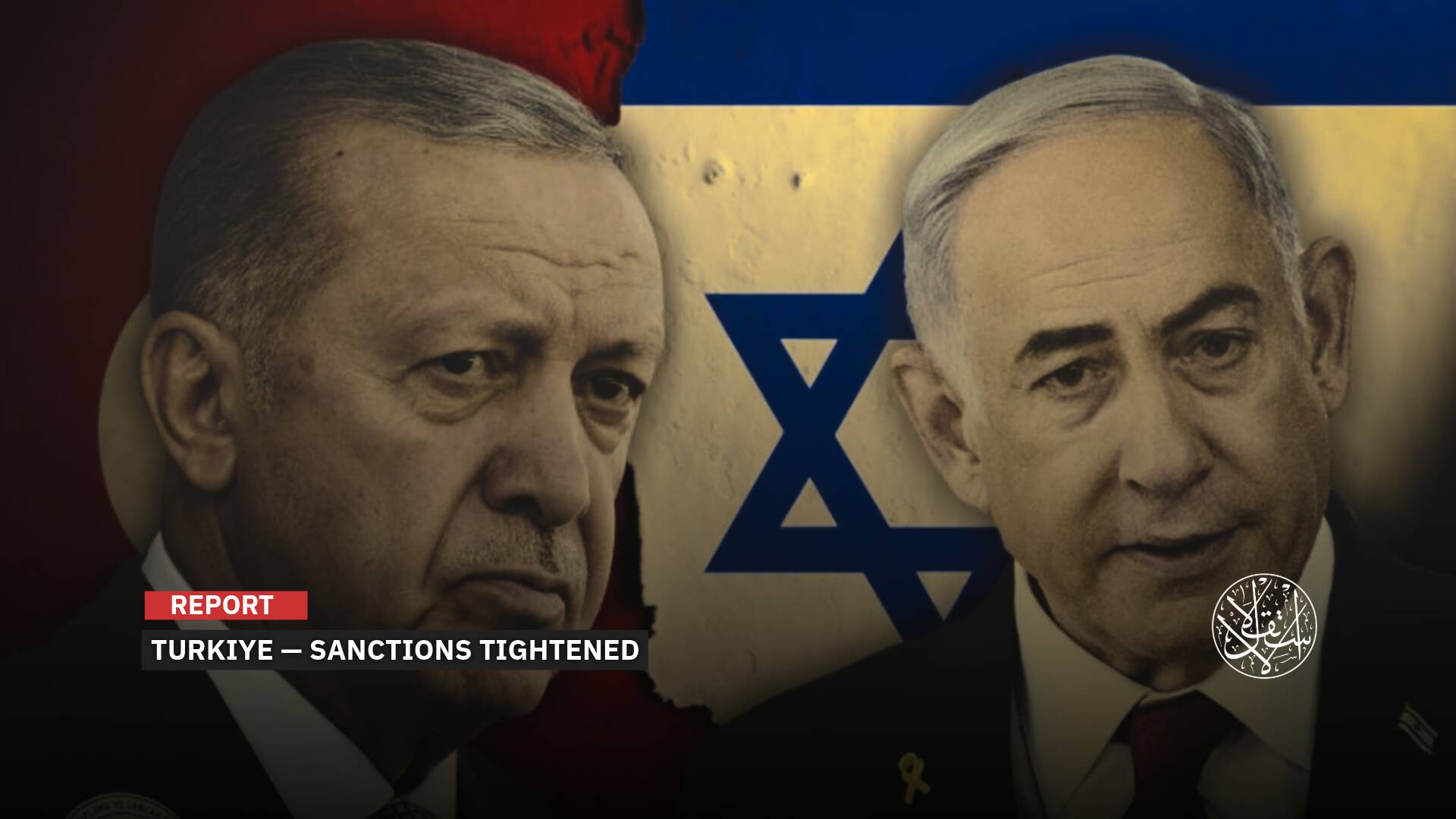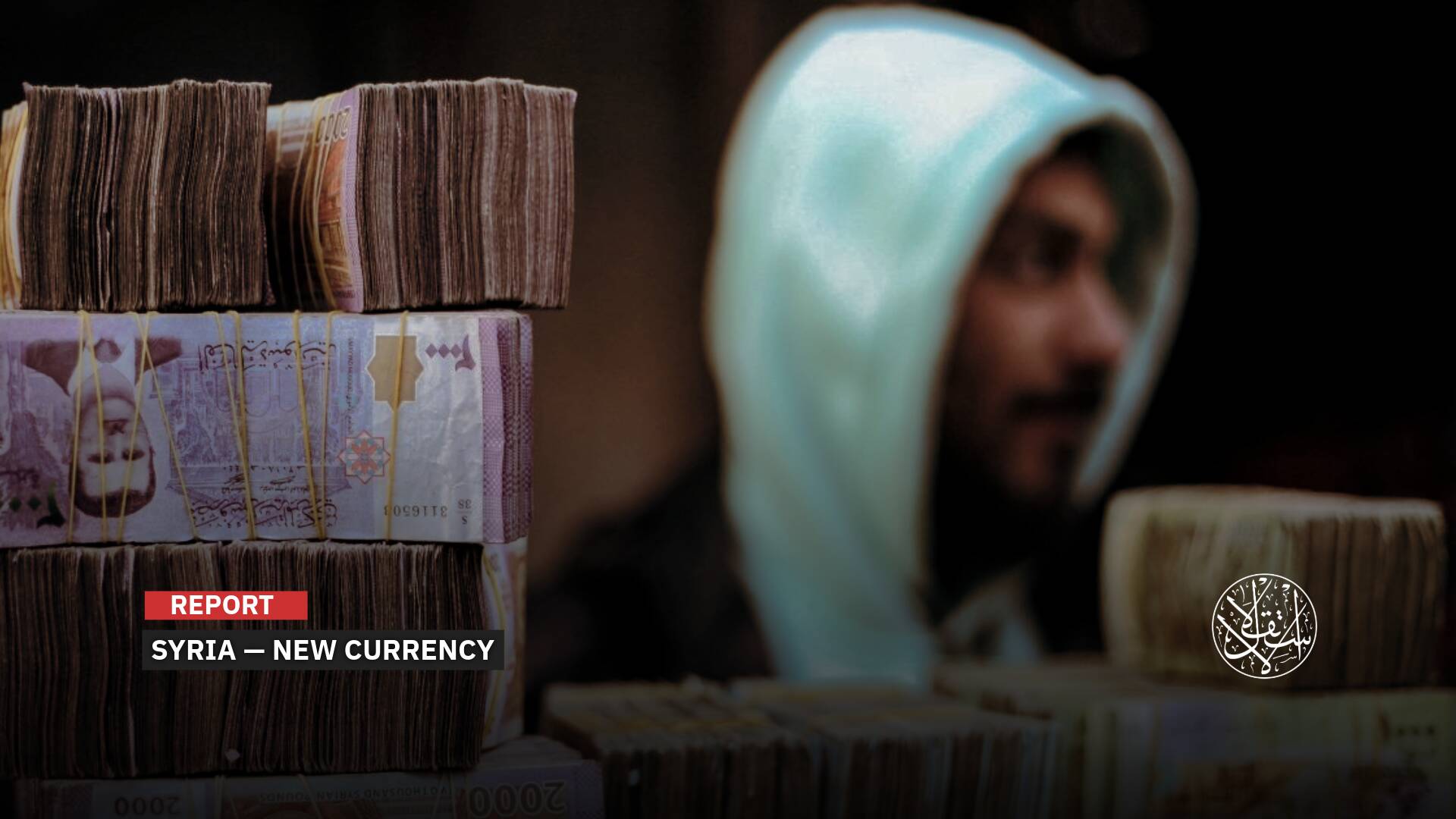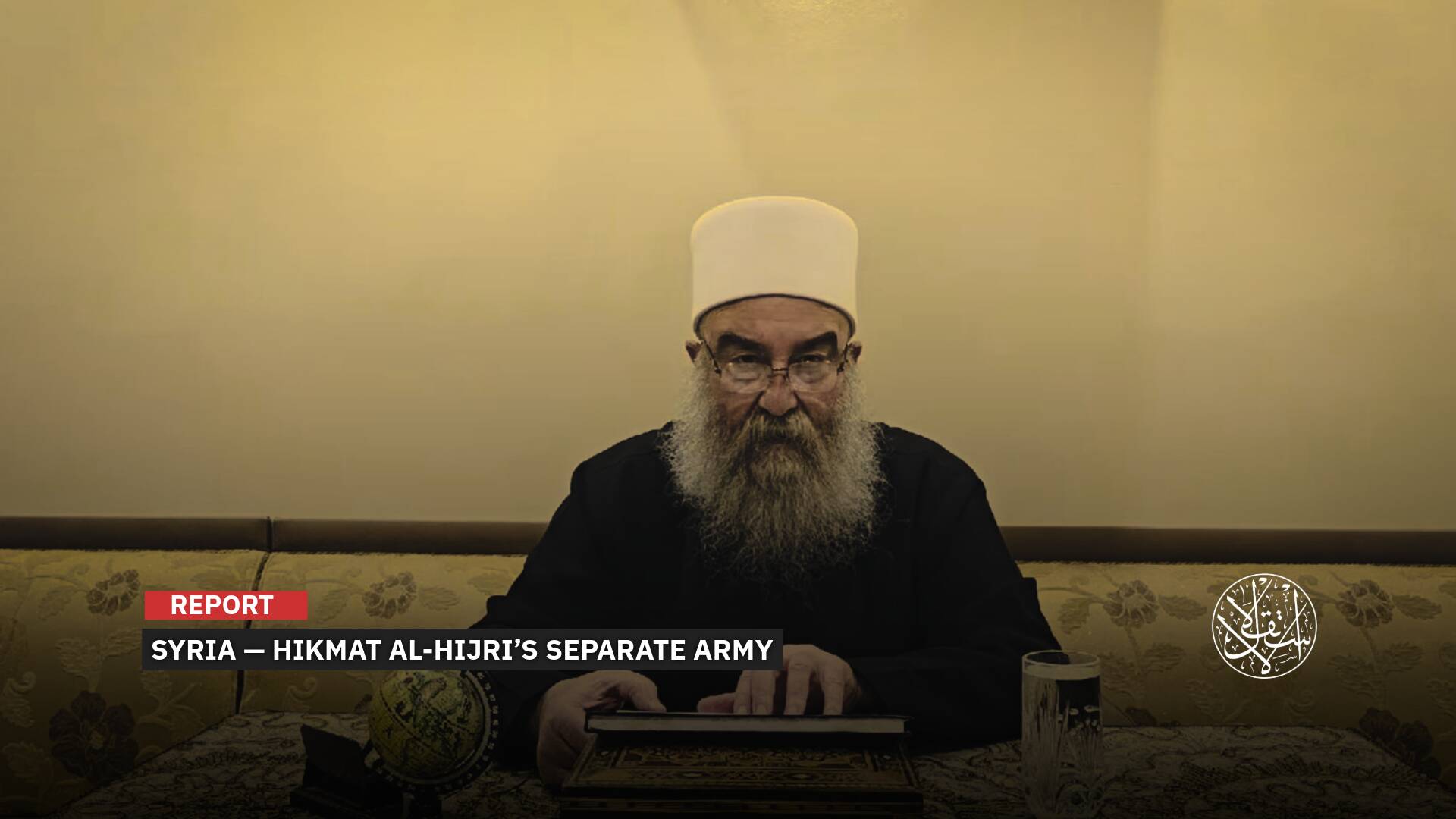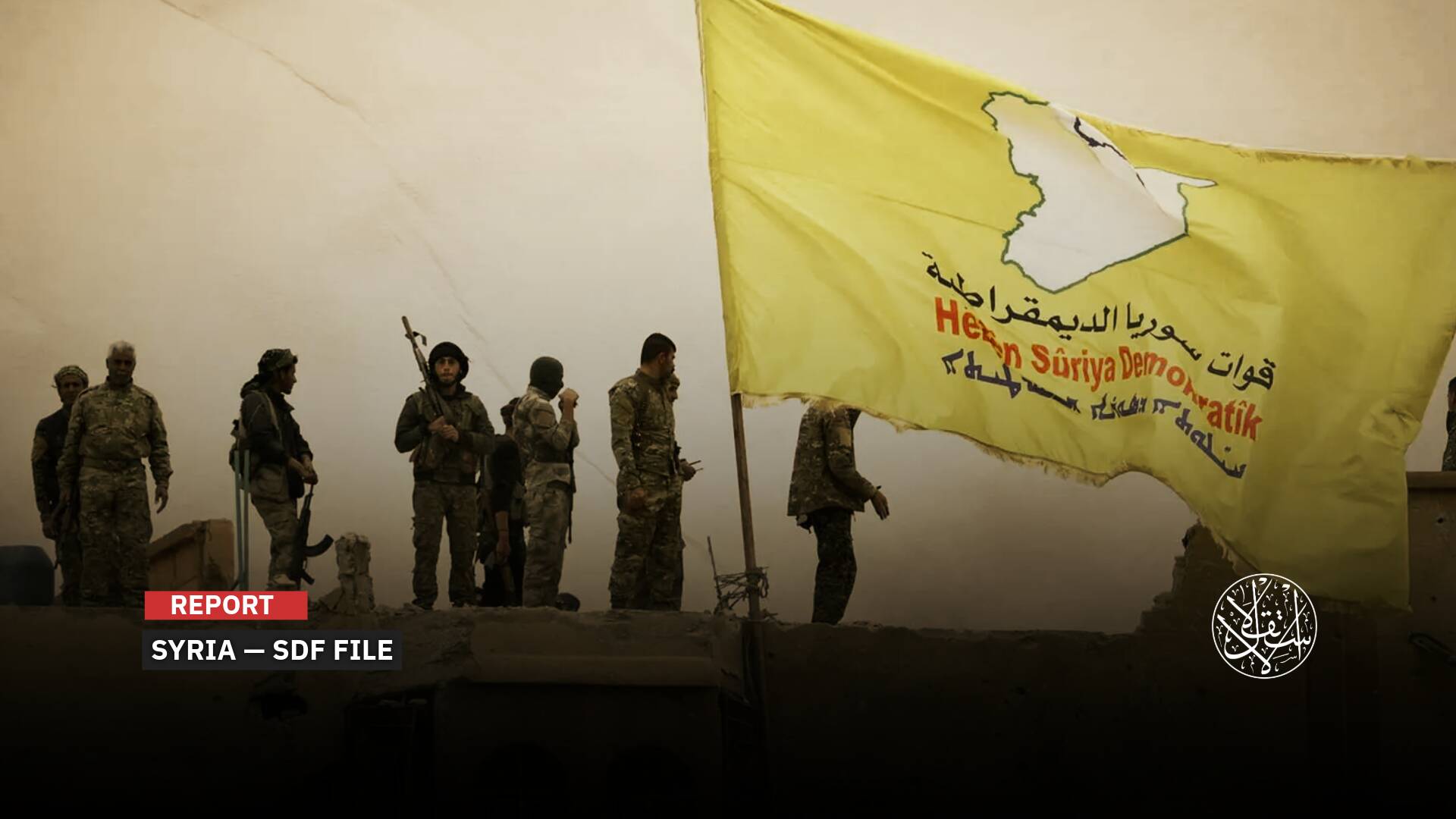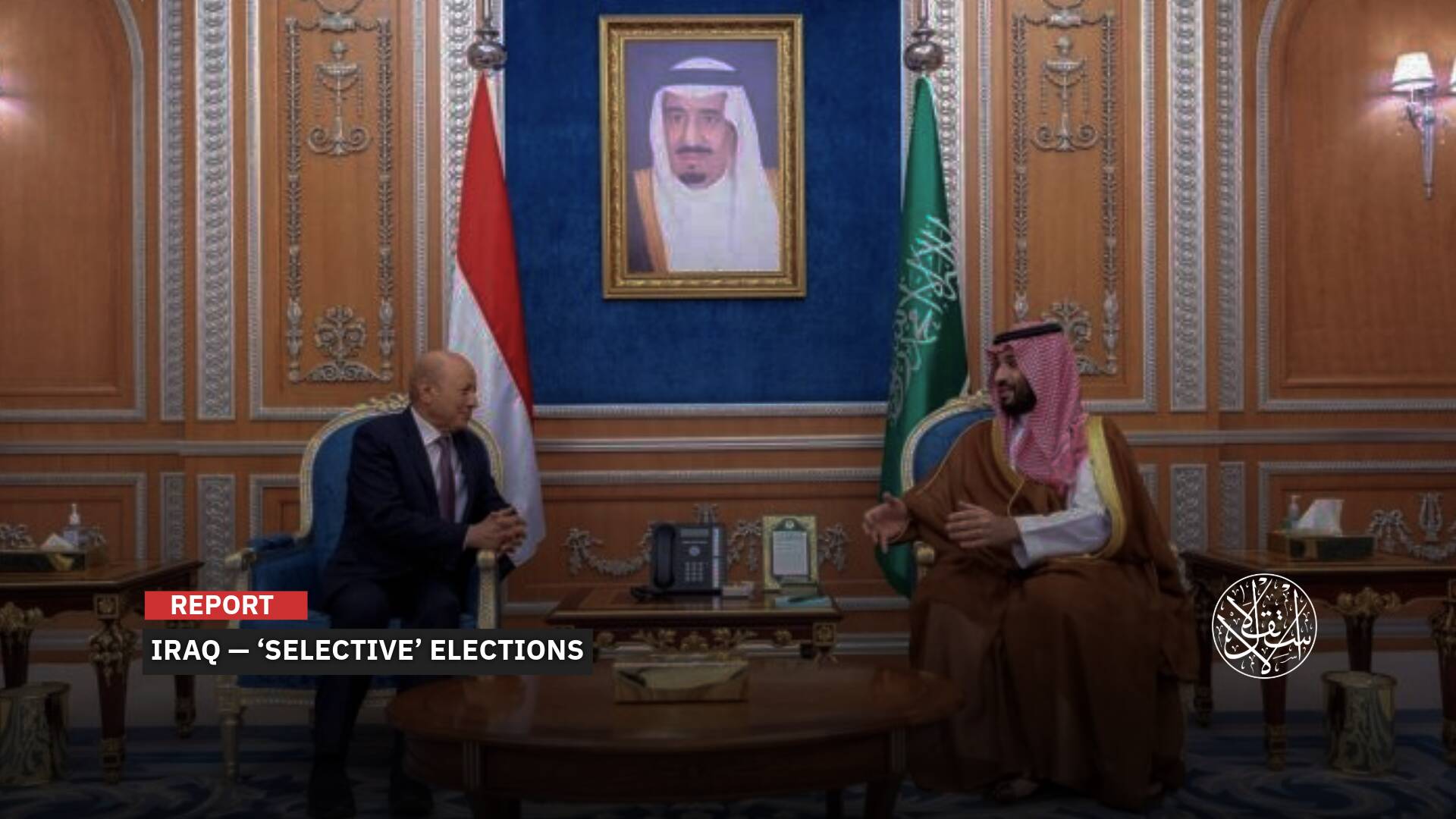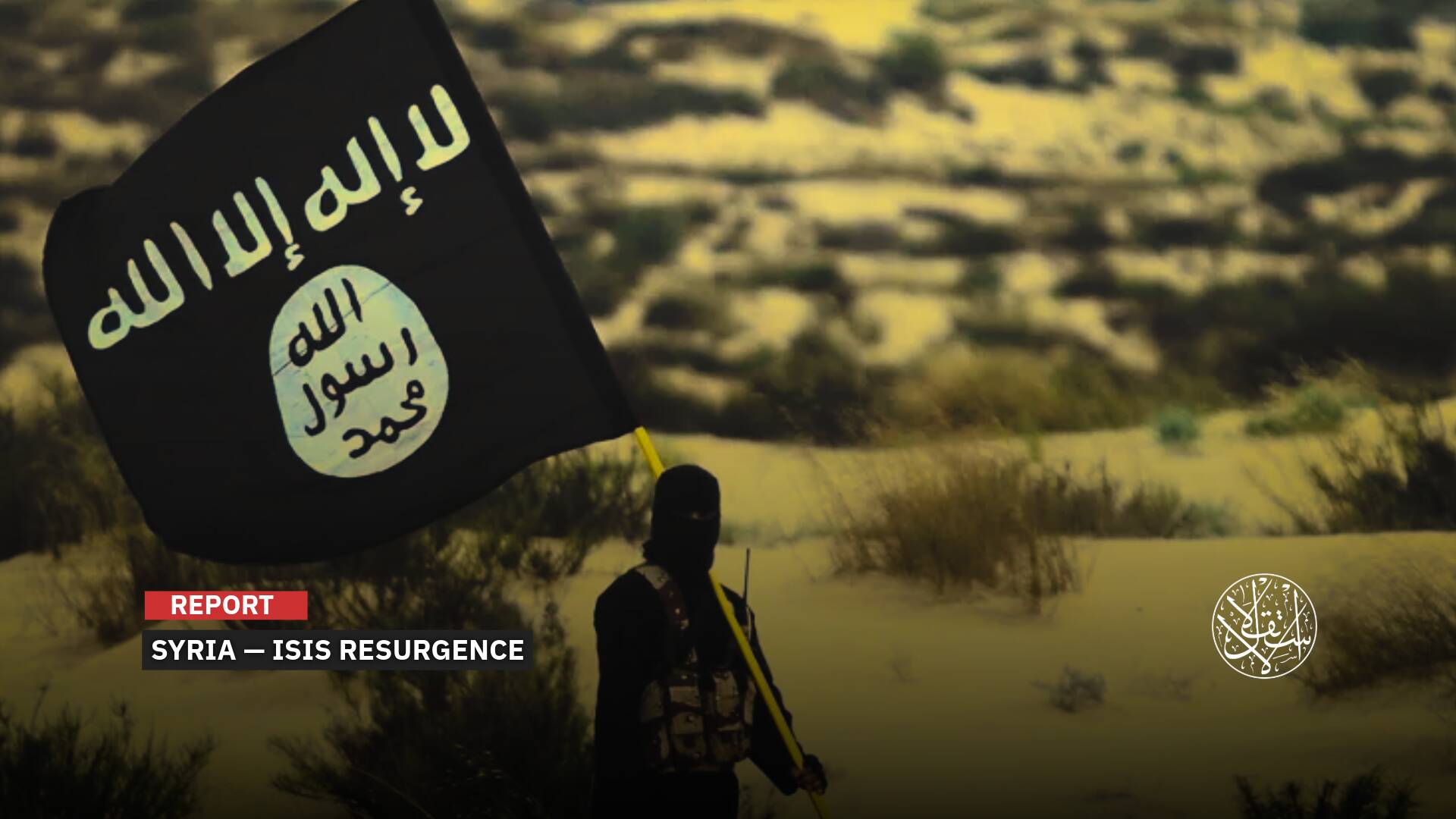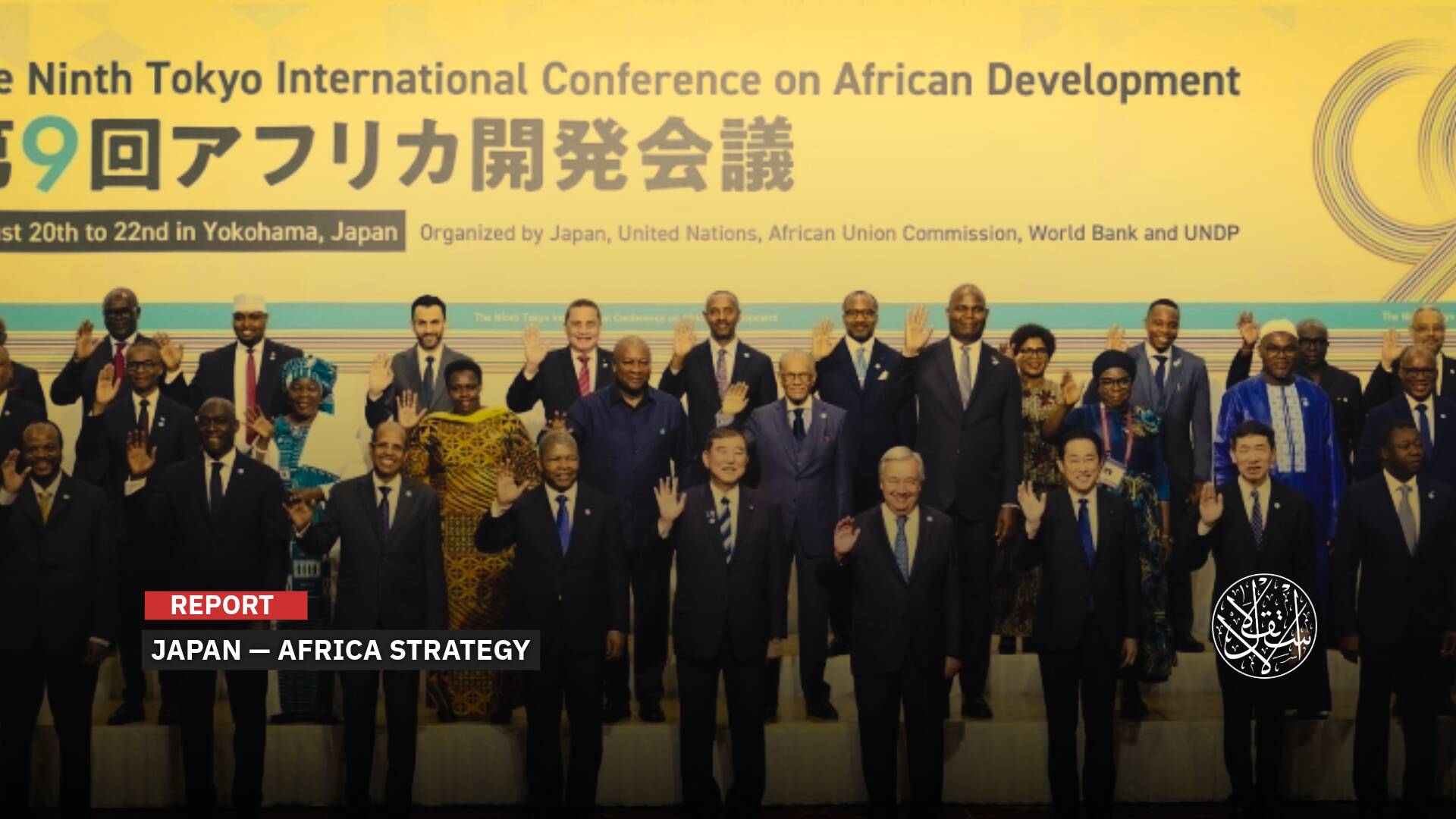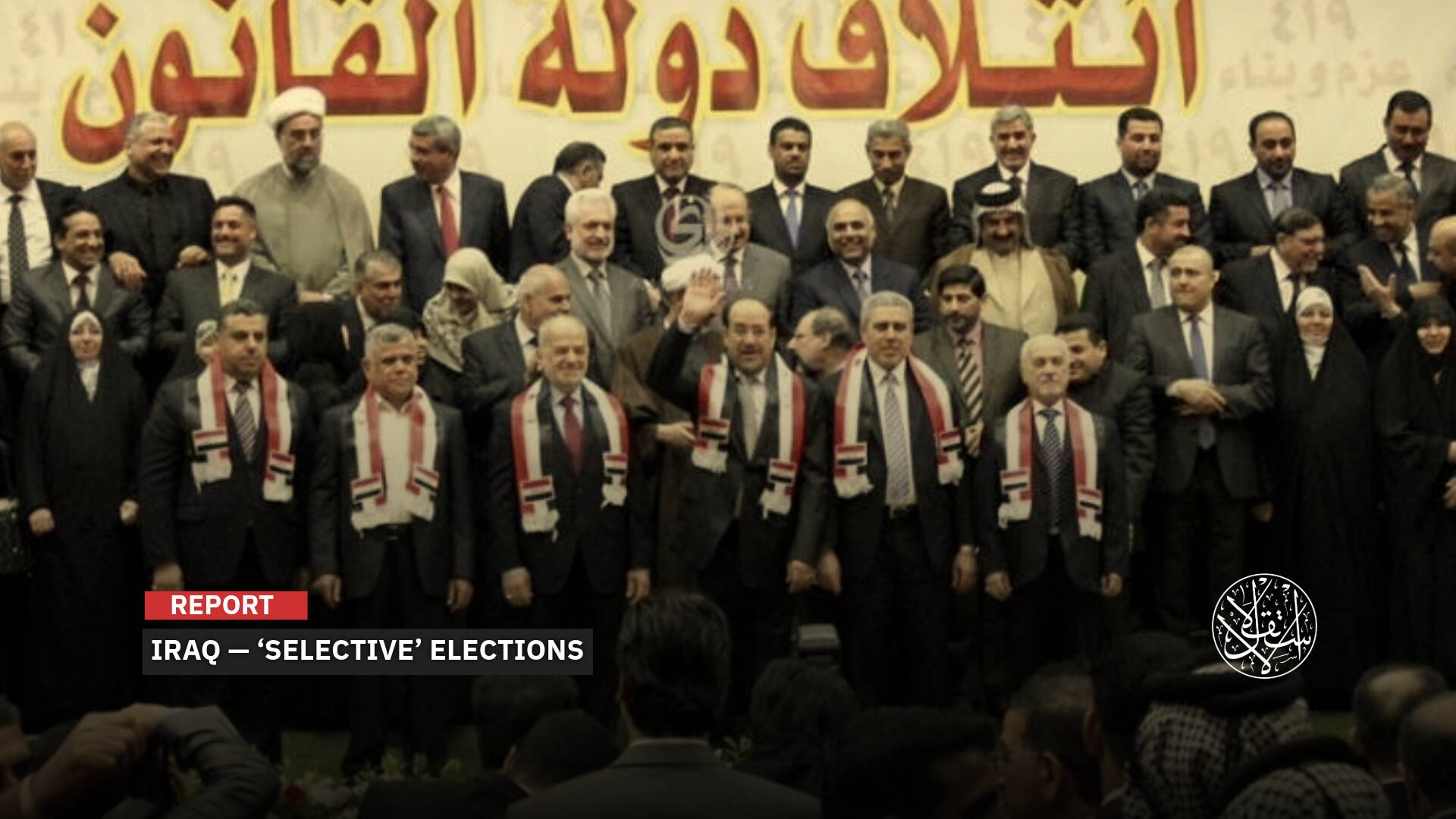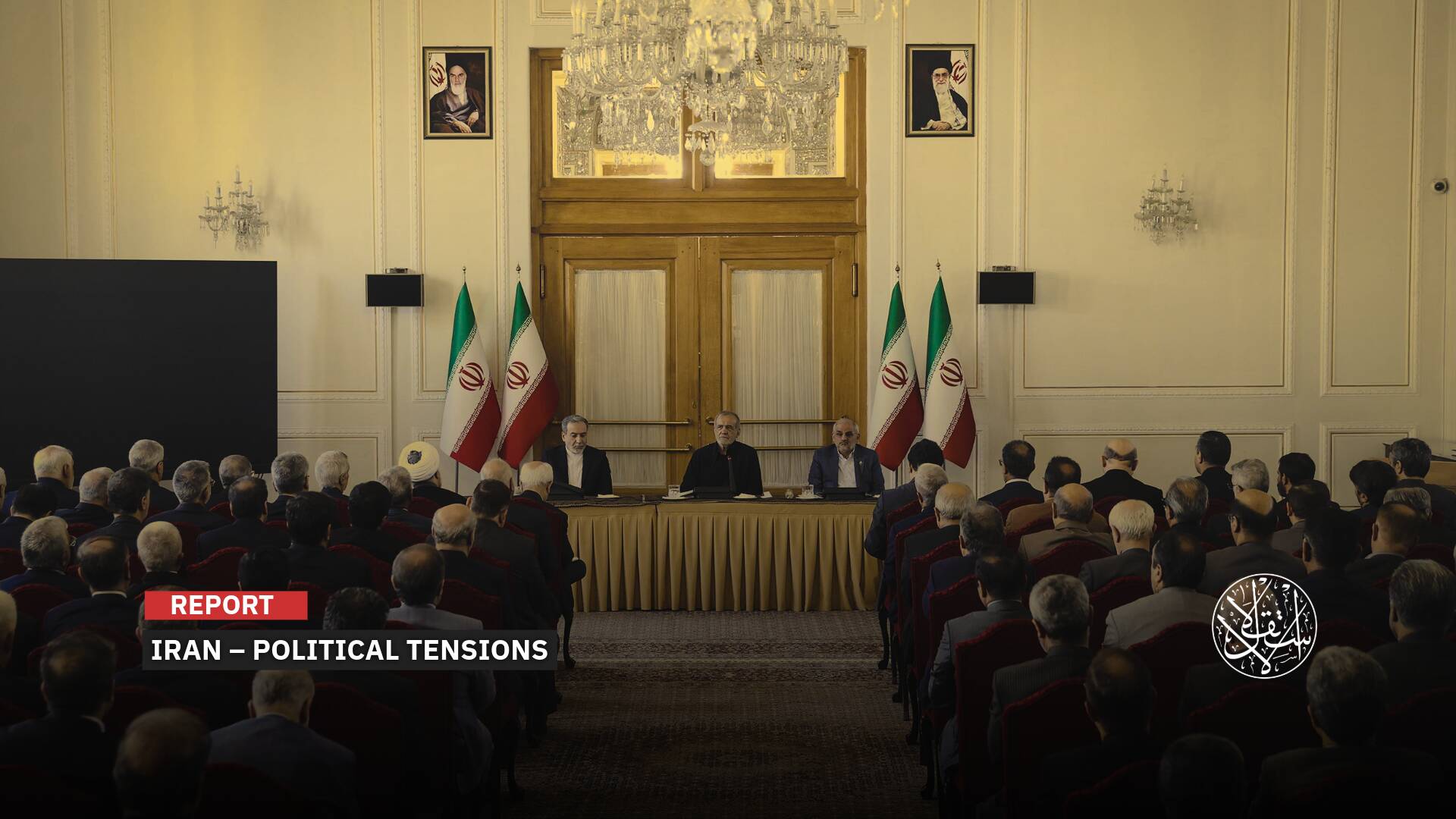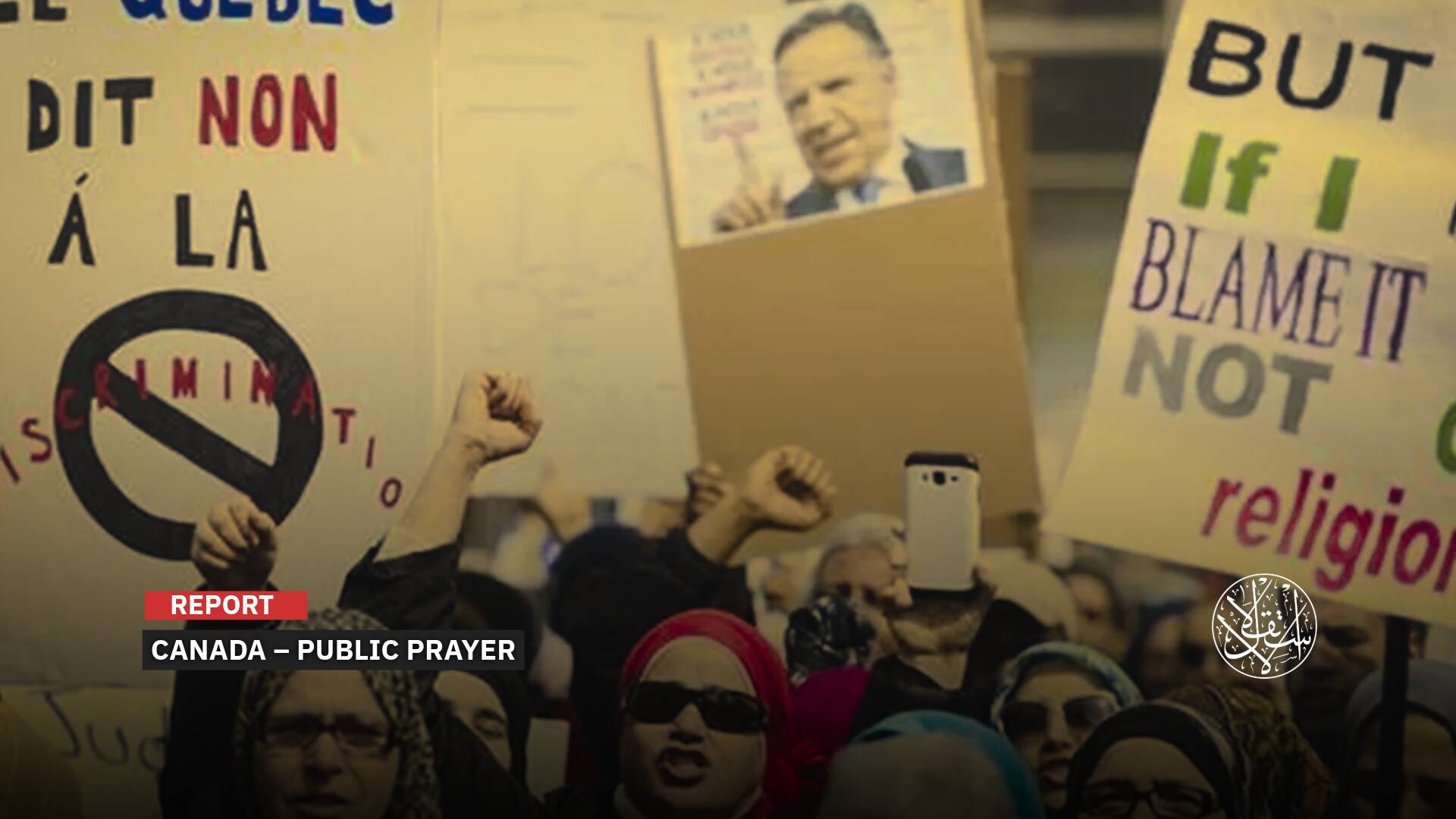The Formation of a Yemeni Presidential Council: An Attempt to Resolve the Crisis or a Plan to ‘Kill’ Legitimacy?
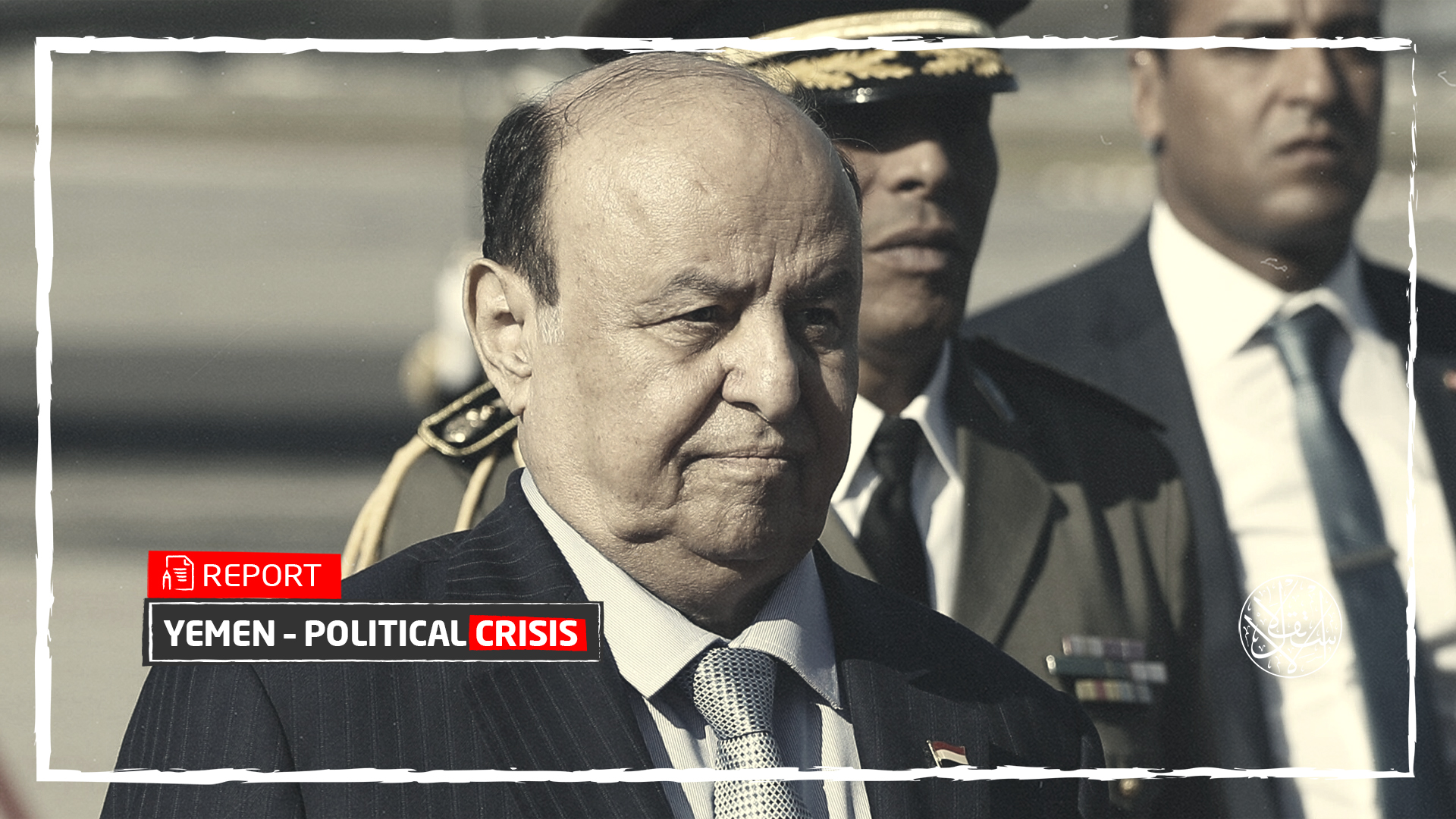
In a surprising and unexpected step, Yemeni President Abdrabbuh Mansur Hadi announced the formation of a presidential leadership council to accomplish the tasks of the transitional phase in Yemen.
He also relieved his deputy, Ali Mohsen al-Ahmar, from his position under Saudi Arabia’s pressure, which is hosting Yemeni consultations in the capital, Riyadh.
Yemeni television broadcast a brief speech of President Hadi, in which he said: "I delegate to the Presidential Leadership Council an irreversible delegation of all my powers in accordance with the constitution, the Gulf initiative and its executive mechanism."
According to the decision, which was read by the Minister of Information, Culture and Tourism Muammar al-Eryani on state television on April 7, 2022, the Presidential Leadership Council, which will be headed by Rashad al-Alimi and consisting of seven members, will have all the powers of the vice president.
In addition to its president, the council includes Sultan al-Arada, Tariq Saleh, Abdul-Rahman Abu Zara’a, Abdullah al-Alimi, Othman Majali, Aidarous al-Zubaidi and Faraj al-Bahsani.
He will assume the tasks of managing the state politically, militarily and security throughout the transitional period, and the Presidential Council includes figures from the Southern Transitional Council who support secession from the north of the country.
Hadi also assigned the Presidential Command Council to "negotiate with the Houthis a permanent ceasefire throughout the republic and sit at the negotiating table to reach a final and comprehensive political solution that includes a transitional phase which will move Yemen from a state of war to peace."
Saudi Arabia welcomed the decision and followed the step by announcing the provision of $3 billion in support to the Yemeni economy, in partnership with the UAE.
Dramatic Transformations
After ten years of rule in Yemen, the Yemeni president refused to put his position at risk in all discussions of the peace process.
He has always linked any proposed solutions to the three references that grant him constitutional legitimacy as the elected president of Yemen, despite his assumption of the presidency of Yemen in formal elections, in which he was the only consensual candidate.
This step comes while Hadi is still residing in the Saudi capital, Riyadh, for the eighth year in a row, after fleeing there due to the Houthi militia's control of the capital, Sanaa, and the overthrow of state institutions by force of arms on September 21, 2014.
The announcement of the transfer of power came after the supposed conclusion of the Riyadh consultations, which were scheduled to take place later on April 7.
A member of the Riyadh Consultations, who refused to be named, described the decision as a sudden and unexpected shift in the course of the political process and events in Yemen.
In an interview with Al-Estiklal, he said: “The consultants entered into a sharp debate about the way to reduce the powers of President Hadi."
He added that "discussions revolved around appointing two deputies to Hadi and dismissing his deputy, Lieutenant-General Ali Mohsen al-Ahmar, or appointing a consensual deputy, and no one knew the details of this sudden step."

On March 17, 2022, the Gulf Cooperation Council announced the launch of an initiative to host Yemeni-Yemeni consultations in the Saudi capital, Riyadh, on the 29th of the same month, in order to reach a ceasefire.
The political axis was at the fore in the Yemeni consultations in Riyadh, where the political parties and the active forces put forward various proposals to reform the legitimacy system.
The sessions of the political axis in the consultations witnessed an intensification of discussion regarding the amendment of the Yemeni Presidency.
According to informed sources, the UAE-backed Southern Transitional Council submitted a proposal to appoint two vice presidents, one from the south and the other from the north.
The Nasserist unionist organization presented another proposal for choosing a consensual deputy, while al-Islah Party refused to change the current deputy, Lieutenant-General Ali Mohsen, and considered this a violation of the constitution.
The solutions proposed in the military and security track that are more closely related to the political axis include appointing a body of qualified military officers to address the imbalances in the Ministry of Defense, end the division in the military forces on the ground, and unify and rehabilitate the army at the highest levels.
Informed sources had revealed that great pressure was being exerted on Abdrabbuh Mansur Hadi to accept the formation of a presidential council and to transfer part of the president's powers to the council.
Constitutional Violation
Observers of the Yemeni affairs believe that the decision to form the Presidential Council in Yemen is a step that violates the laws and constitution of the Republic of Yemen.
Adel al-Shujaa, a leader in the General People's Congress, to which the new President of the Presidential Council belongs, described the decision as a violation of the constitution, and a plan to “kill” legitimacy.
In a post on his Facebook account, he added that Hadi's decision to transfer his authority to a leadership council is against the constitution.
Therefore, he concluded his decision by saying: The constitution has been abolished in order for them to pass this council, according to al-Shujaa.
Al-Shujaa added: "As long as there is no constitution or laws, what is the reference that will rule the originally different parties on unity, national sovereignty and the republic?"
Yemeni journalist and writer Mustafa Rajeh believes that "the unconstitutional leadership council is the last chance for legitimacy, and that all forces have now become a coup and a de facto force, regardless of their different premises and goals."
He added in a series of posts on his Facebook account that "it would have been more useful to appoint one deputy instead of Ali Mohsen al-Makal. As for the appointment of a leadership council that performs the duties of the vice president, it represents a complete coup against the constitution of the Republic of Yemen and the agreement on the transfer of power."
Rajeh added: "Hadi overthrew the state, sovereignty, legitimacy and the constitution, and above all of them he will sit as president above the leadership council, which has nothing to do with the enforceable constitution of the Republic of Yemen! The transfer of powers does not mean the absence of his presence as president."
According to observers, the formation of a presidential council of contradictory personalities, most of whom owe absolute loyalty to the region, opens the door to conflicts unless there is a clear vision.
The former Minister of Transport, Saleh al-Jabwani, commented on the decision, saying: "The Saudi-UAE alliance brought legitimacy to the stage of complete destruction.”
He added in a tweet on his Twitter account: "This council will legitimize the existing cantons and lead the process of dismantling the country to the next stage of partition if it does not explode before completing this process due to its lack of homogeneity."
Mysterious Moves
According to informed sources, the Yemeni president’s decision to form a presidential council was preceded by a series of meetings, the most important of which was his meeting with the National Defense Council and his meeting with Saudi Crown Prince Mohammed bin Salman in the Saudi capital, Riyadh.
Before the decision was issued, doubts arose about the existence of a mysterious scheme after the sudden summoning of the governor of Marib, Sheikh Sultan al-Arada to Riyadh, and his transfer on a Saudi plane after he apologized for not attending before the start of the Riyadh consultations.
Al-Arada had refused to participate in the opening of the consultations under the pretext of the permanent Houthi threats on the outskirts of the oil-rich Marib Governorate.
To everyone's surprise, he was appointed to the Presidency Council with the rank of Vice President, along with Major General Faraj al-Bahsani, Governor of Hadhramaut, and commander of the Second Military District.
The council included the head of the Southern Transitional Council demanding secession, Aidarous al-Zubaidi, the leader of the national resistance, Tariq Muhammad Abdullah Saleh, nephew of the late president Ali Saleh, and the leader of the Salafi-oriented Giants Brigades loyal to the UAE, Abdul-Rahman Abu Zara'a al-Muharrami.
The President of the Presidential Council, Rashad al-Alimi, has been one of the most prominent advisors to President Hadi since 2014.

Before that, he was one of the most prominent faces of the former regime, when he held high security and intelligence positions from 2000 until 2011, when he survived the explosion of the presidential mosque in Sana’a, targeting ousted President Ali Abdullah Saleh and senior state leaders.
The Riyadh consultations brought hopes to the war, which has entered its eighth year, to give the Yemeni parties and forces the opportunity to thaw their differences and reform the course of the next battle for peace or war in the event that the Houthis continue to reject peace efforts, according to the opinion of many Yemenis.
Sources
- Issuance of a presidential declaration on the transfer of power and the formation of the Presidential Leadership Council
- Yemen: The president announces the formation of a presidential leadership council and transfers all its powers to it and assigns it to negotiate with the Houthis
- Saudi Arabia welcomes Hadi's decision and announces $3 billion in support for Yemen


